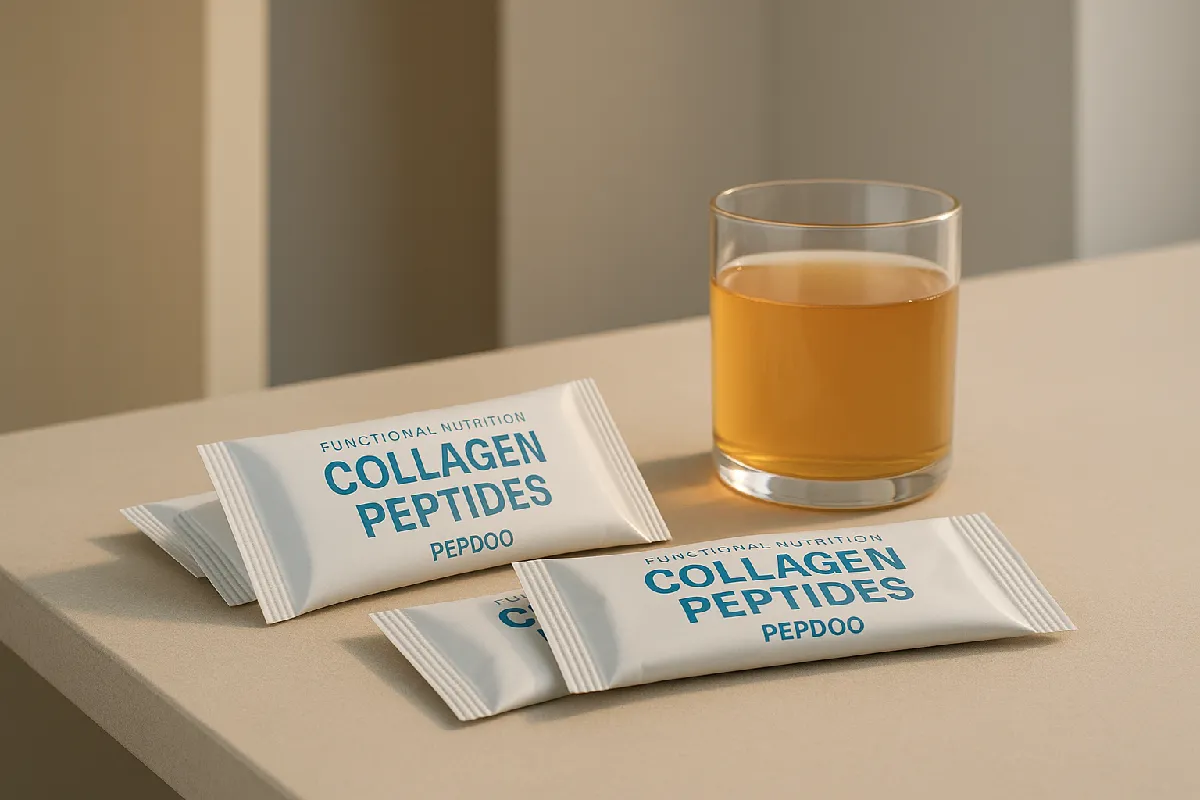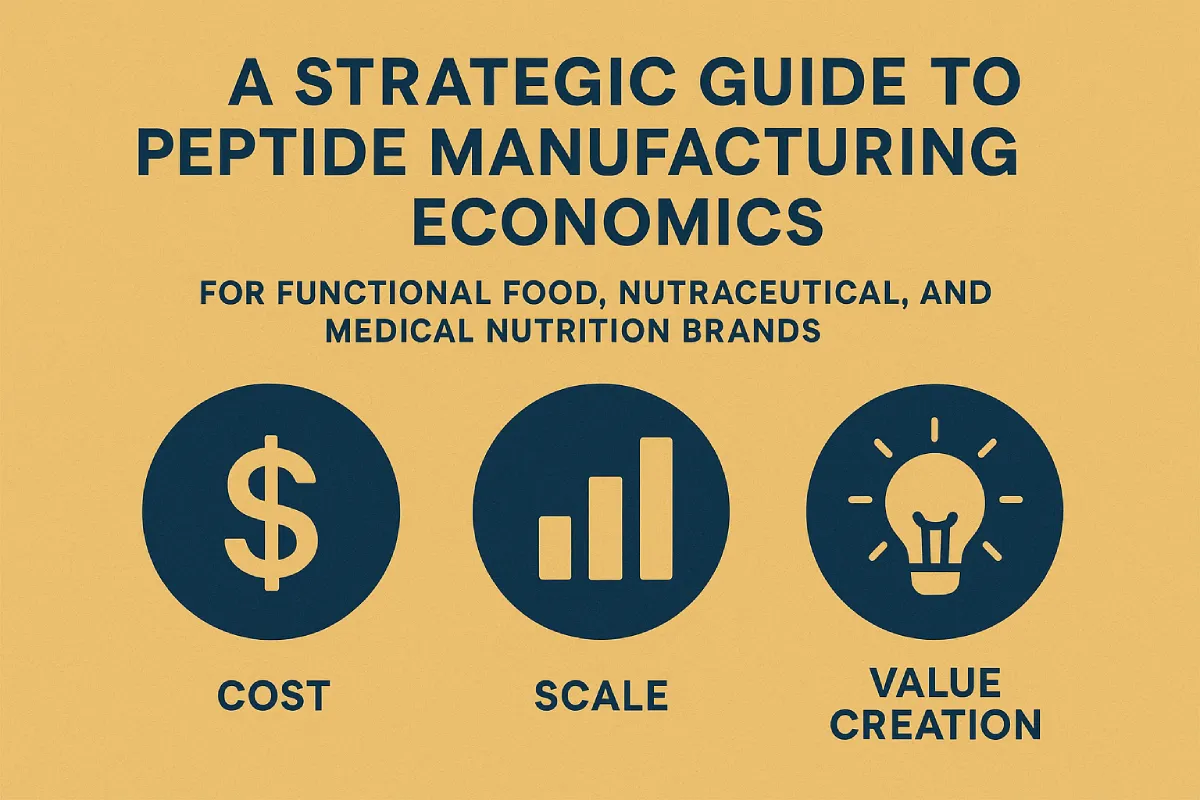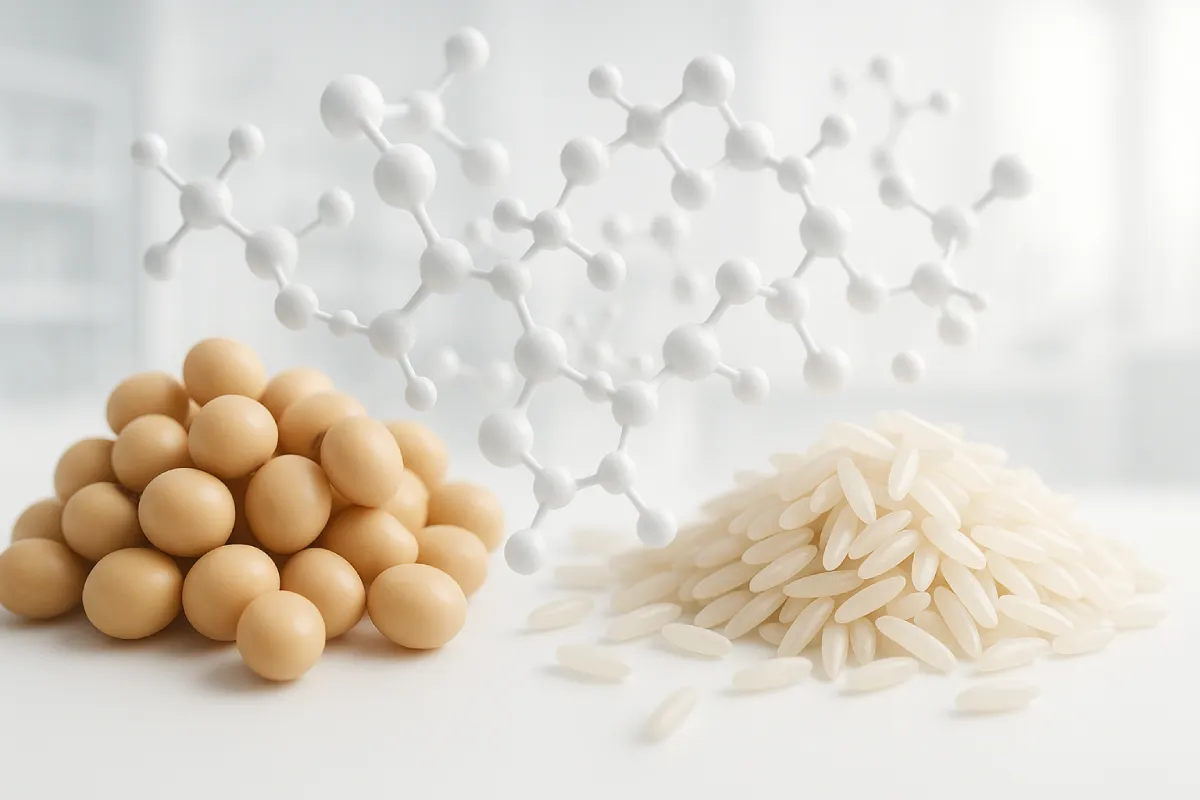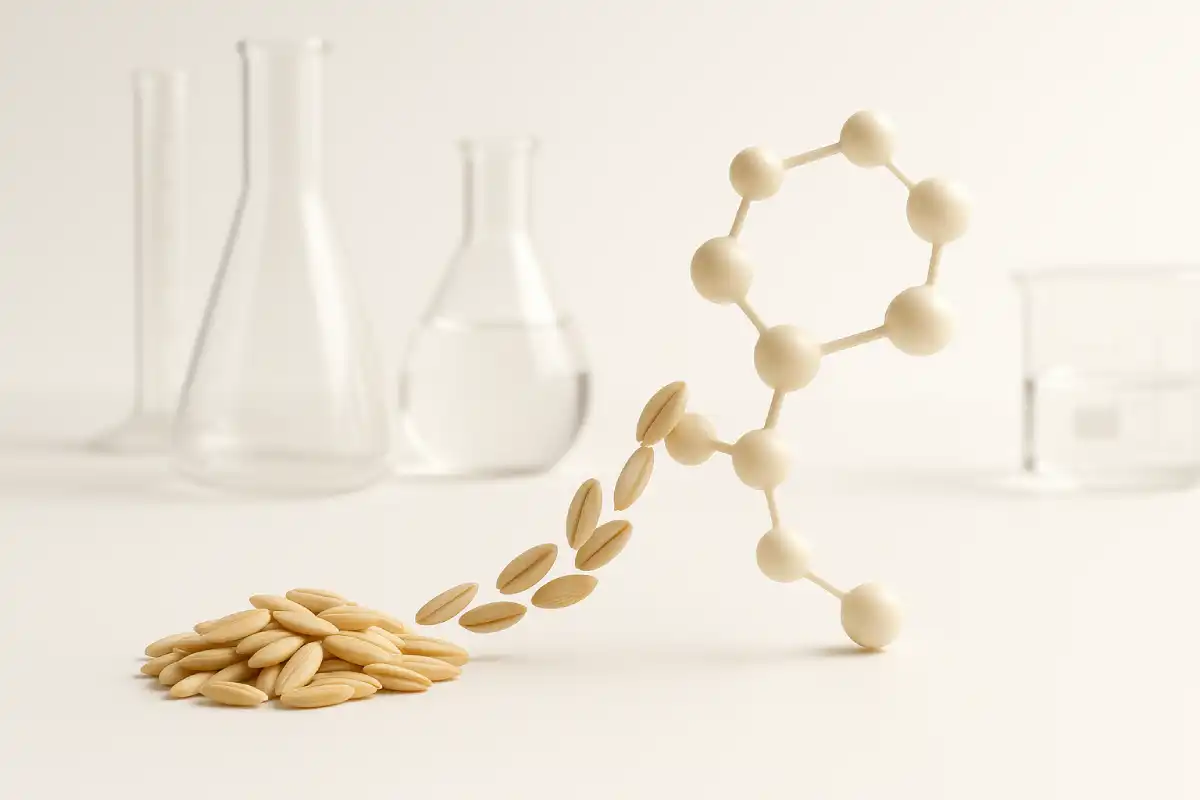The Clean Label Shift: Why Peptides Matter in Modern Sports Nutrition
As the demand for cleaner, more transparent formulations continues to rise, the sports nutrition industry is undergoing a fundamental transformation. Today’s consumers are not just looking for performance—they’re also seeking authenticity, simplicity, and science-backed results. This “clean label” movement is reshaping product development across categories, and at the heart of this change lies a group of ingredients perfectly suited for the job: functional peptides.
For B2B stakeholders—from formulation scientists and OEM manufacturers to procurement officers and brand managers—understanding the role of peptides in clean sports nutrition is no longer optional. It’s essential for staying competitive in a market where efficacy must go hand-in-hand with purity and transparency.
The Clean Label Movement in Sports Nutrition
Clean label in sports nutrition means more than just removing artificial additives. It encompasses ingredient traceability, minimal processing, free-from claims (e.g., non-GMO, allergen-free, WADA-compliant), and functional integrity. According to a recent industry report, over 65% of sports nutrition consumers now prioritize clean ingredients when choosing supplements or performance beverages [1].
For brand owners and OEMs, this shift places significant pressure on R&D teams to deliver high-performing products with shorter ingredient lists. That’s where peptides—short chains of amino acids derived from enzymatic protein hydrolysis—offer a clear competitive edge.
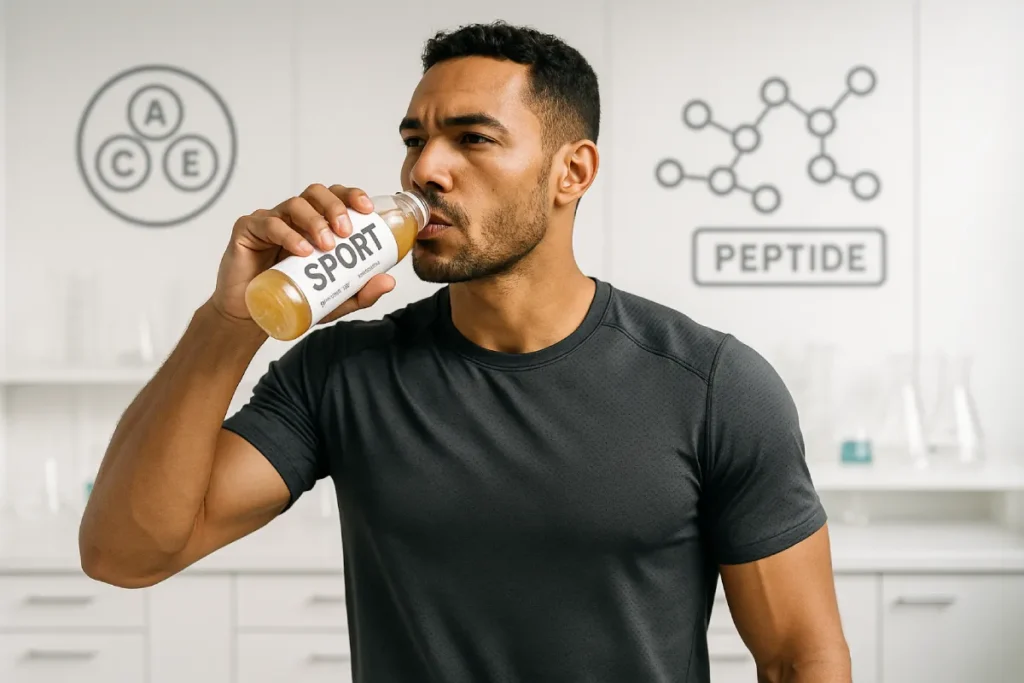
What Makes Peptides Ideal for Clean Sports Formulations?
Unlike intact proteins or isolated amino acids, peptides represent a bioactive “middle ground.” They are naturally occurring, highly bioavailable, and often require lower dosages to achieve the same physiological effects. In clean label applications, peptide ingredients bring several formulation advantages:
- Rapid absorption and targeted functionality
- Low effective dose, reducing filler content
- Neutral flavor profile, ideal for RTD and powder blends
- Non-GMO and allergen-free options
- Stable under heat, pH, and processing stress
Functional Peptides Meet Performance Demands
Muscle Recovery and Synthesis
Whey-derived di- and tri-peptides have been shown to stimulate muscle protein synthesis more efficiently than whole proteins or free-form amino acids, thanks to faster uptake through peptide transporters in the gut [2].
Endurance and Anti-Fatigue
Peptides with high arginine or branched-chain amino acid content support nitric oxide production, mitochondrial activity, and lactic acid buffering—beneficial for endurance athletes [3].
Joint and Connective Tissue Support
Collagen peptides promote collagen synthesis in joints and tendons. Studies show they help reduce exercise-induced joint discomfort [4].
Immune and Gut Health Maintenance
Immunomodulatory peptides can help prevent exercise-induced immune suppression, especially during high-intensity training cycles [5].
Weight Management and Lean Body Mass
Peptides influence metabolic hormones like GLP-1 and ghrelin, aiding fat regulation and body composition goals [6].
Applications in Clean-Label Product Development
Peptides can be integrated into a wide variety of formats while adhering to clean label standards:
- RTD beverages
- Powder blends
- Capsules and tablets
- Gels and gummies
- Snack bars
Regulatory and Compliance Considerations
Peptide manufacturers should ensure:
- WADA compliance
- FSSC22000 / ISO22000 / GMP certifications
- Batch consistency
- Global regulatory documents
Market Trends and Commercial Opportunity
The global clean sports nutrition market is projected to exceed USD 18 billion by 2028, with peptides gaining prominence for their functionality and clean positioning [7].
Challenges and How to Solve Them
| Challenge | Solutions |
|---|---|
| Bitterness | Use low-MW peptides, masking agents |
| Heat stability | Choose validated peptides for thermal processing |
| Regulatory complexity | Work with full-service manufacturers |
| Substantiating claims | Use peptides with published data |

Why Leading Brands Choose Full-Spectrum Peptide Manufacturers
Partnering with a peptide manufacturer like PEPDOO® provides:
- Custom formulation support
- Stable, scalable production
- Documentation for export compliance
- Scientific validation and product differentiation
Conclusion: Clean Is the New Standard
Clean sports nutrition is here to stay. Peptides offer a powerful solution that combines performance, purity, and formulation flexibility—giving B2B players a pathway to innovation and market leadership.
🚀 Ready to Build a Clean Sports Product Line?
Partner with PEPDOO®—a global peptide source manufacturer offering:
- Clinically backed, clean-label peptide ingredients
- OEM & formulation support
- Documentation and regulatory compliance
FAQ
They offer faster absorption, lower dosage requirements, and cleaner formulations with neutral taste and minimal processing.
WADA-compliance, ISO22000, FSSC22000, GMP, Non-GMO, and allergen-free claims are essential for clean sports products.
Yes—most peptides used in sports nutrition are validated for stability under pasteurization, spray-drying, and RTD processing conditions.
Ranges from 1–10g per serving depending on peptide function—muscle, endurance, or joint support.
Yes. Pea, soy, rice, and pumpkin seed peptides are ideal for vegan clean-label formulations.
Technical support, custom formulation services, scientific data, regulatory documents, and sample access.
References
- Innova Market Insights. (2024). Clean label trends in sports nutrition.
- Morifuji, M. et al. (2010). Dietary dipeptides accelerate absorption and muscle protein synthesis. British Journal of Nutrition, 104(4), 419–423.
- Zhang, Y., & Li, C. (2019). Arginine peptides enhance mitochondrial function and fatigue resistance. Journal of Sports Science and Medicine, 18(3), 467–475.
- Clark, K. L., et al. (2008). 24-Week study on the use of collagen hydrolysate as a dietary supplement. Current Medical Research and Opinion, 24(5), 1485–1496.
- Sugihara, F., et al. (2016). Immunomodulatory effects of soy peptides. International Journal of Peptide Research and Therapeutics, 22(4), 415–421.
- Kim, H. J., et al. (2020). Bioactive peptides in weight management: Review and application. Nutrients, 12(10), 3158.
- Euromonitor International. (2023). Global Sports Nutrition Outlook 2023–2028.


